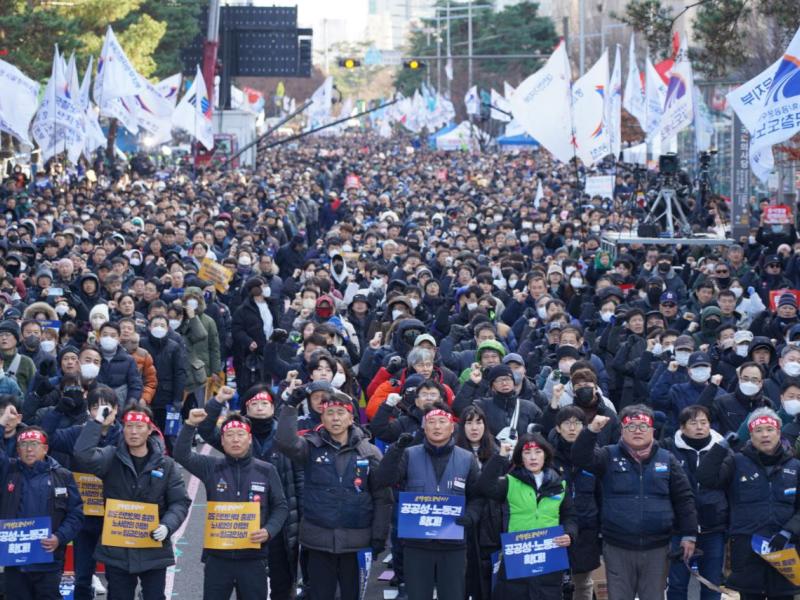The demonstrations come on the back of a recent judgment in the Netherlands exposing the practices of one transport company used by IKEA.
Trade union activists in Germany and Sweden are highlighting the plight of drivers in IKEA’s contracting chain who are working on the road for weeks and months on end, earning inferior wages, living out of their trucks and subject to the abuse of social, labour and safety rules.
The judgment from the District Court of the Northern Netherlands exposed an IKEA contractor that uses foreign truck drivers from affiliated companies to cut costs. ITF union the FNV had exposed how the drivers were being paid a basic wage around eight times lower than the basic wage under the Dutch Collective Labour Agreement (CLA).
The Court found that the arrangement was set up to evade the Dutch CLA and put an immediate end to the practice. It also ordered an end to the practice of drivers living in their trucks during weekly rest breaks and awarded back pay to three Dutch drivers.1
New ITF head of inland transport, Noel Coard, said that IKEA must face up to its responsibilities: “This cannot go on. The top of the contracting chain needs to be held to account. European Commission President Juncker said that Europe is not the Wild West and we agree. IKEA can expect our trade unions to keep exposing the actions of their contractors and to continue to hold the company responsible for them.
“Economic employers like IKEA control the economy on our roads. Transport companies are under constant threat from the top of the supply chain: break the law or lose the contract. But IKEA has the power to end the misery that truck drivers are living. Our door remains open and we firmly believe that IKEA can be part of the solution rather than the problem.”
A report in Australia last month exposed the power and influence of economic employers at top of road transport contracting chains.
It stated: “powerful clients at the top of the supply chain have significant influence over rates paid… In contrast, small freight transport providers at the bottom of the supply chain are left in an extremely weak position, with little or no power to negotiate rates paid or timelines for delivery, particularly after other supply chain parties have taken their portion of the profits.” 2
Just as trade union activists are today standing up against exploitation in road transport, Transport Ministers from around Europe are also taking a stand. Last month, nine Transport Ministers formed a ‘Road Alliance’ to fight social dumping and promote fair competition. 3
For more information search #therealIKEA on social media.
ENDS
More information
1. The District Court of the Northern Netherlands, Civil Law Division (Assen Office), Roll No.: 5591346 / VV EXPL 16/120.
2. Associate Professor Louise Thornthwaite and Dr Sharron O’Neill, ‘Evaluating Approaches to Regulating WHS in the Australian Road Freight Transport Industry’, November 2016.
3. ‘Road Alliance’ Memorandum, Meeting of European Ministers responsible for Transport, Paris, 31 January 2017.



